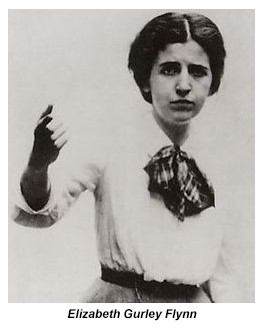 Elizabeth Gurley Flynn, Wobbly organizer, born – 1890Eugene Debs and three other trade unionists arrested after Pullman Strike – 1894 Elizabeth Gurley Flynn, Wobbly organizer, born – 1890Eugene Debs and three other trade unionists arrested after Pullman Strike – 1894
Actors Equity is recognized by producers after stagehands honor their picket lines, shutting down almost every professional stage production in the country. Before unionizing, it was common practice for actors to pay for their own costumes, rehearse long hours without pay, and be fired without notice – 1919
United Slate, Tile & Composition Roofers, Damp & Waterproof Workers Association change name to Roofers, Waterproofers & Allied Workers – 1978
Some 675,000 employees struck ATT Corp. over wages, job security, pension plan changes and better health insurance. It was the last time CWA negotiated at one table for all its Bell System members: divestiture came a few months later. The strike was won after 22 days – 1983
Television writers, members of The Writers Guild of America, end a 22-week strike with a compromise settlement – 1988
August 08
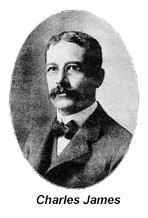 Delegates to the St. Paul Trades and Labor Assembly elect 35-year-old Charles James, leader of the Boot and Shoe Workers local union, as their president. He was the first African-American elected to that leadership post in St. Paul, and, many believe, the first anywhere in the nation – 1902 Delegates to the St. Paul Trades and Labor Assembly elect 35-year-old Charles James, leader of the Boot and Shoe Workers local union, as their president. He was the first African-American elected to that leadership post in St. Paul, and, many believe, the first anywhere in the nation – 1902
Cripple Creek, Colo., miners strike begins – 1903
Amalgamated Meat Cutters & Butcher Workmen of North America merge with Retail Clerks Int’l Union to become United Food & Commercial Workers – 1979
Cesar Chavez is posthumously awarded the Presidential Medal of Freedom by President Bill Clinton, becoming the first Mexican-American ever to receive the honor – 1994
 (The Fight in the Fields: No man in this century has had more of an impact on the lives of Hispanic Americans, and especially farmworkers, than the legendary Cesar Chavez. Born to migrant workers in 1927, he attended 65 elementary schools before finishing 7th grade, the end of his formal education. Through hard work, charisma and uncommon bravery he moved on to become founder and leader of the United Farm Workers of America (UFW) and to win a degree of justice for tens of thousands of workers… and to set a moral example for the nation.) (The Fight in the Fields: No man in this century has had more of an impact on the lives of Hispanic Americans, and especially farmworkers, than the legendary Cesar Chavez. Born to migrant workers in 1927, he attended 65 elementary schools before finishing 7th grade, the end of his formal education. Through hard work, charisma and uncommon bravery he moved on to become founder and leader of the United Farm Workers of America (UFW) and to win a degree of justice for tens of thousands of workers… and to set a moral example for the nation.)
August 09
Knights of Labor strike New York Central railroad, ultimately to be defeated by scabbing – 1890
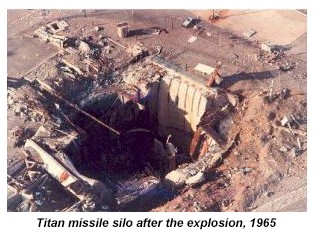 Nine men and one woman meet in Oakland, Calif., to form what was to become the 230,000-member California School Employees Association, representing school support staff throughout the state – 1927 Nine men and one woman meet in Oakland, Calif., to form what was to become the 230,000-member California School Employees Association, representing school support staff throughout the state – 1927
A fire and resultant loss of oxygen when a high pressure hydraulic line was cut with a torch in a Titan missile silo near Searcy, Ark., kills 53 people, mostly civilian repairmen – 1965
United Papermakers & Paperworkers merge with Int’l Brotherhood of Pulp, Sulphite & Paper Mill Workers of the U.S. & Canada to become United Paperworkers Int’l Union, now a division of the Steelworkers Union – 1972
Some 73,000 Bell Atlantic workers end a successful two-day strike over wages and limits on contracting out of work – 1998
The United Steelworkers and Amicus, the largest manufacturing union in the United Kingdom, announce formation of a strategic alliance to work on a range of mutual concerns – 2005
August 10
The Air Line Pilots Association is founded at a meeting in Chicago attended by 24 activists from across the country – 1931
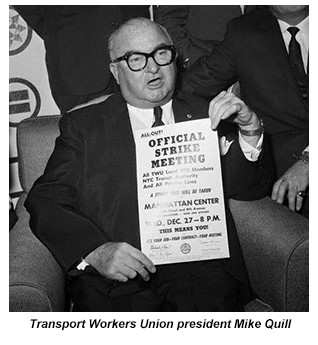 Hundreds of Transport Workers Union members descend on a New York City courthouse, offering their own money to bail out their president, Mike Quill, and four other union leaders arrested while making their way through Grand Central Station to union headquarters after picketing the Interborough Rapid Transit offices in lower Manhattan – 1935 Hundreds of Transport Workers Union members descend on a New York City courthouse, offering their own money to bail out their president, Mike Quill, and four other union leaders arrested while making their way through Grand Central Station to union headquarters after picketing the Interborough Rapid Transit offices in lower Manhattan – 1935
President Roosevelt signs amendments to the 1935 Social Security Act, broadening the program to include dependents and survivors’ benefits – 1939
Construction on the St. Lawrence Seaway begins. Ultimately 22,000 workers spent five years building the 2,342-mile route from the Atlantic to the northernmost part of the Great Lakes – 1954
I.W. Abel, president of the United Steel Workers of America from 1965 to 1977, dies at age 79 – 1987
President Barack Obama signs a $26 billion bill designed to protect 300,000 teachers, police and others from layoffs spurred by budgetary crises in states hard-hit by the Great Recession – 2010
August 11
Federal troops drive some 1,200 jobless workers from Washington D.C. Led by unemployed activist Charles “Hobo” Kelley, the group’s “soldiers” include young journalist Jack London and William Haywood, a young miner-cowboy called “Big Bill” – 1884
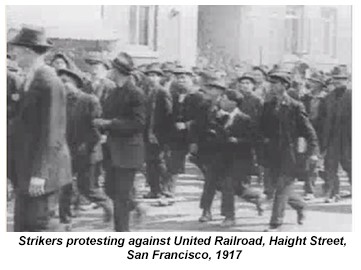 One hundred “platform men” employed by the privately owned United Railroads streetcar service in San Francisco abandon their streetcars, tying up many of the main lines in and out of the city center – 1917 One hundred “platform men” employed by the privately owned United Railroads streetcar service in San Francisco abandon their streetcars, tying up many of the main lines in and out of the city center – 1917
Int’l Longshoremen’s and Warehousemen’s Union receives CIO charter – 1937
Maine lobster fishers form a local of the Machinists union as they face a 40-year low price for their catches, and other issues. By October, the New York Times reported, it had 600 members, 240 of them dues-payers – 2013
August 12
The national Brotherhood of Carpenters & Joiners is founded in Chicago in a gathering of 36 carpenters from 11 cities – 1881
Coal company guards kill seven, wound 40 striking miners who are trying to stop scabs, Virden, Ill. – 1898
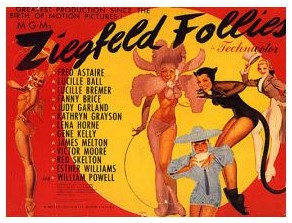 With the news that their boss, Florenz Ziegfeld, was joining the Producing Managers’ Association, the chorus girls in his Ziegfield Follies create their own union, the Chorus Equity Association. They were helped by a big donation from superstar and former chorus girl Lillian Russell. In 1955 the union merged with the Actor’s Equity Association – 1919 With the news that their boss, Florenz Ziegfeld, was joining the Producing Managers’ Association, the chorus girls in his Ziegfield Follies create their own union, the Chorus Equity Association. They were helped by a big donation from superstar and former chorus girl Lillian Russell. In 1955 the union merged with the Actor’s Equity Association – 1919
Teamsters official William Grami is kidnapped, bound and beaten near Sebastopol, Calif. He was leading a drive to organize apple plant workers in the area – 1955
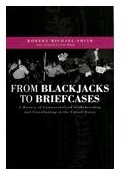 (From Blackjacks to Briefcases is the first book to document the systematic and extensive use by American corporations of professional union-busters, an ugly profession that surfaced after the Civil War and has grown bolder and more sophisticated with the passage of time. Since the 1980s, hundreds of firms—including the Detroit News, Caterpillar and Pittston Coal, to name but three—have paid out millions of dollars to hired thugs. Some have been in uniforms and carried nightsticks and guns, others have worn three-piece suits and carried attaché cases, but all had one simple mission: to break the backs of workers struggling for decency and fair treatment on the job.) (From Blackjacks to Briefcases is the first book to document the systematic and extensive use by American corporations of professional union-busters, an ugly profession that surfaced after the Civil War and has grown bolder and more sophisticated with the passage of time. Since the 1980s, hundreds of firms—including the Detroit News, Caterpillar and Pittston Coal, to name but three—have paid out millions of dollars to hired thugs. Some have been in uniforms and carried nightsticks and guns, others have worn three-piece suits and carried attaché cases, but all had one simple mission: to break the backs of workers struggling for decency and fair treatment on the job.)
The North American Free Trade Agreement—NAFTA—is concluded between the United States, Canada and Mexico, to take effect in January, 1994, despite protests from labor, environmental and human rights groups – 1992
What was to become a 232-day strike by major league baseball players over owners’ demands for team salary caps began on this day; 938 games were cancelled – 1994
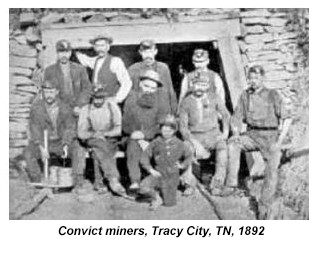 August 13 August 13
Striking miners at Tracy City, Tenn., capture their mines and free 300 state convict strikebreakers. The convicts had been “leased” to mineowners by officials in an effort to make prisons self-supporting and make a few bucks for the state. The practice started in 1866 and lasted for 30 years – 1892
Newspaper Guild members begin 3-month strike of Hearst-owned Seattle Post-Intelligencer, shutting the publication down in their successful fight for union recognition – 1936
 Civil rights leader and union president A. Philip Randolph strongly protests the AFL-CIO Executive Council’s failure to endorse the August 28 “March on Washington” – 1963 Civil rights leader and union president A. Philip Randolph strongly protests the AFL-CIO Executive Council’s failure to endorse the August 28 “March on Washington” – 1963
Five construction workers are killed, 16 injured when the uncompleted roof of the Rosemont (Ill.) Horizon arena collapses – 1979
—Compiled and edited by David Prosten |